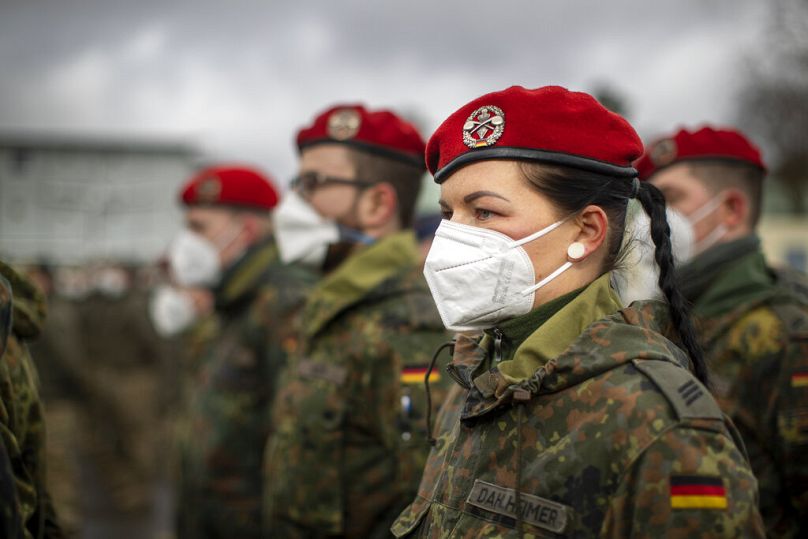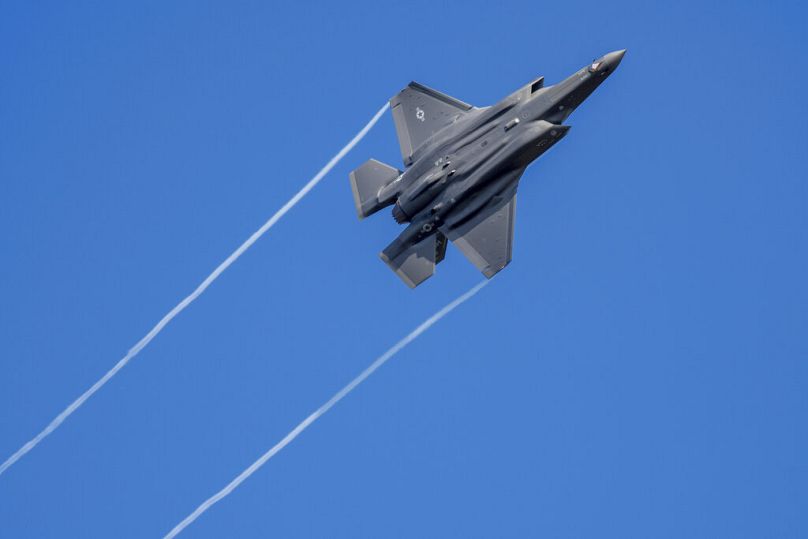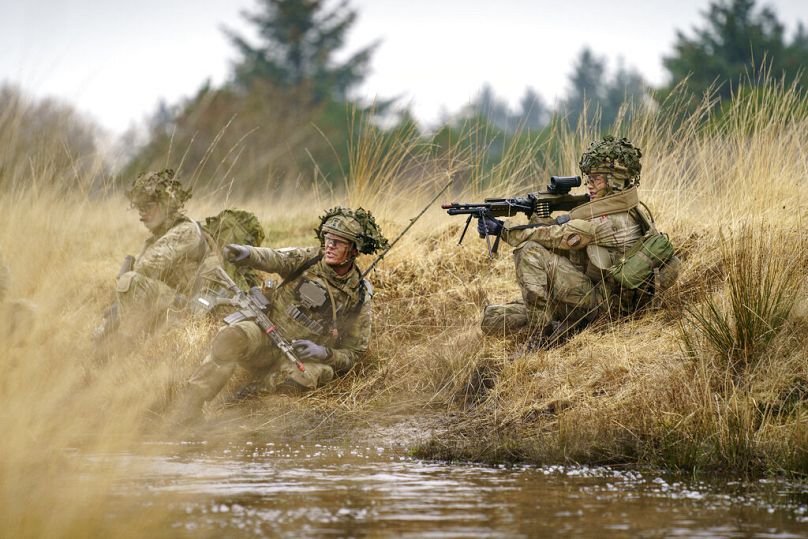German lawmakers are set to discuss defence spending in the coming days, after Chancellor Scholz announced plans to spend an extra €100 billion on the military. But what can a budget like that buy?
In the last month, since Russia invaded Ukraine, Germany has gone through a watershed transformation when it comes to its military.
Within days, Chancellor Scholz's almost knee-jerk reaction to the war was to announce a new €100 billion pot of money for the military, as Germany said it would finally meet a NATO target of spending 2% of GDP on defence.
"But it's important to understand that we're not going to spend the 2%, which is €75 billion, plus another €100 billion. Those two things are linked," explains Dr Claudia Major, head of the research division at the German Institute for International and Security Affairs in Berlin.
So what will German spend the extra money on?
Now that the extra €100 billion has been agreed, where do Germany's spending priorities lie?
After decades of under-funding, the new cash injection is first likely to be used bringing the military up to where it should already be.
"There is no spending plan from the Ministry of Defence yet," says Gustav Gressel, a senior policy fellow at the European Council on Foreign Relations in Berlin.
"In 2016 the Ministry of Defence said that to fulfil its obligations under NATO integrated force planning it would need €65 billion a year. They got 40-50% per year. Since 2016. So imagine where the money goes..." he adds.
A recent German parliamentary report on the military made for dispiriting reading, finding only 50% of some major hardware was working properly and lacked even basic equipment like bulletproof jackets and cold weather clothing to keep soldiers warm and dry.
The Germans have had a long and expensive military shopping list for almost a decade which they haven't yet been able to afford, even though their defence budget increased each year.
That list includes the new F-35 Lightning multi-role jets that were belatedly announced earlier this month; heavy transport helicopters; air defence systems in cooperation with France and Spain; and a new main battle tank which is being developed in cooperation with France.
And how much would all that cost, to fulfil the existing wish list, without even getting started on any extra items?
"The list is long, and it almost perfectly covers €100 billion," says Dr Major.
"There are requirements that Germany aims to have but was not able to finance. So there's not a lot of room for manoeuvre," she states.
So while the military top brass may want to buy some expensive Israeli drones; or submarines, warships and 20,000 more troops, there might simply not be a budget for that after the current wish-list is fulfilled.
After the Ukraine invasion, will Germany have to re-think its spending plans?
One of the key issues that Germany's Ministry of Defence will have to look at is whether the spending plans which were put in place years before Russia's invasion of Ukraine are still what the country needs after the invasion.
Germany launched a national security strategy process last week, the first country to undertake such an exercise while the Ukraine war is ongoing. They expect to have it ready early next year but questions are already being asked about whether the wish-list of big-ticket military items drawn up long before the war in Ukraine is still needed now, in light of what they've learned about Russian capabilities, tactics, strengths and shortcomings.
"The question is how much of the projects we have on the list are still valid, and what needs to be adapted," says Dr Major.
"Things like the F-35s we will always need it. Heavy transport helicopters we will always need it, but for the rest, I think we need to check again what will be the major task of our armed forces" she tells Euronews.
Could Germany's procurement plans encourage other European countries?
With Germany making such a major investment in military spending, could it encourage other European countries to allocate more budget resources to strengthening or modernising their militaries?
Martin Hurt, a research fellow at the International Centre for Defence and Security in Estonia says the German move may have contributed to Denmark and Sweden deciding to meet a NATO target to spend 2% of GDP on defence.
"In all three countries" Hurt notes "social democrats are the sole or lead party in government."
However there's not the same sense of urgency in those two Nordic nations as there has been in Germany, with Denmark giving itself until 2033 to meet the 2% target; while Sweden (which isn't a NATO member) hasn't decided on a specific deadline yet, there seems to be a majority consensus in parliament to hit the target by 2025.
"Other European nations that have not yet decided when to meet the spending target may be stimulated by the German decision even though they may not be willing to go that far or so quickly" Hurt tells Euronews.
Analysts say one of the most important things that European countries need to figure out, especially if they're revamping their military spending, is interoperability.
When most EU countries started cutting their defence budgets during the 2008 economic crisis, they did so without a lot of coordination. It meant that many of the same capabilities were being scaled back.
"If we are able to cooperate in terms of capabilities and defence industries we could make much more of the money and spend it far more wisely than each country on its own going to spend the money," says Dr Major.














